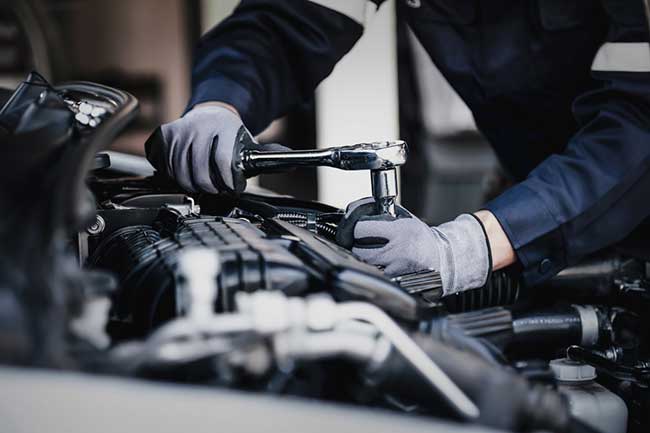All Categories
Featured
Unexpected vehicle repair services can disrupt your finances, making automotive repair work insurance policy an appealing choice for many vehicle drivers. Whether you're a brand-new car proprietor or taking care of an older car, recognizing the details of auto repair work insurance coverage and insurance coverage is necessary for making notified decisions.
What Is Automotive Fixing Insurance?
Automotive repair service insurance policy, typically called mechanical failure insurance (MBI), is a policy developed to cover the expenses of changing or fixing vehicle components after a breakdown. Unlike standard auto insurance policy, which resolves accident-related problems, repair work insurance policy concentrates on mechanical concerns unassociated to collisions.
What Does It Cover?
The particular protection varies depending on the strategy and the insurance firm you pick. Typically, repair insurance coverage covers:
Engine Services: Consisting of components like the timing belt, pistons, and cylinder heads.
Transmission Repairs: Covering the gearbox and related parts.
Electrical System: Dealing with concerns with alternators, starters, and onboard computer system systems.
Cooling and Heating Equipments: Such as radiators, thermostats, and cooling devices.
![]()
Steering and Suspension: Consisting of shocks, struts, and power guiding mechanisms.
Nonetheless, policies frequently omit regular maintenance, wear-and-tear items like brake tires or pads, and cosmetic problems.
![]()
That Demands Automotive Repair Insurance Policy?
While repair service insurance policy isn't necessary, it can be beneficial for:
Owners of Older Cars: If your auto is out of guarantee, repair insurance coverage can offer tranquility of mind versus expensive malfunctions.
Frequent Commuters: High-mileage motorists are more probable to experience mechanical problems, making insurance coverage a worthwhile financial investment.
Chauffeurs of Expensive Versions: High-end or specialty vehicles often have higher fixing prices, which can be minimized by insurance.
Trick Advantages
Financial Protection: Helps avoid big, unexpected repair work expenses.
Versatility: Plans can be tailored to cover details components or systems.
Tranquility of Mind: Minimizes stress regarding prospective malfunctions.
Considerations Before Buying
Prior to dedicating to an auto fixing insurance coverage, consider these variables:
Policy Terms and Conditions: Testimonial what is and isn't covered to prevent shocks throughout a claim.
Deductibles: Recognize the out-of-pocket expenses you'll need to pay before insurance coverage kicks in.
![]()
Repair Service Shop Options: Some insurance firms require you to use certain repair facilities, which might be inconvenient.
Costs Costs: Evaluate the annual expense of the plan versus the probability of requiring major repair services.
Existing Warranty: Inspect if your vehicle's maker or supplier warranty already supplies adequate protection.
Final Ideas
Automotive fixing insurance coverage can be a useful safeguard, specifically for vehicle drivers concerned about the high costs of unforeseen repair services. By meticulously assessing policy alternatives and straightening them with your driving routines and automobile requirements, you can choose if this protection is appropriate for you. For added protection, always preserve regular lorry servicing to lessen malfunction risks and maximize your insurance policy benefits.
What Is Automotive Fixing Insurance?
Automotive repair service insurance policy, typically called mechanical failure insurance (MBI), is a policy developed to cover the expenses of changing or fixing vehicle components after a breakdown. Unlike standard auto insurance policy, which resolves accident-related problems, repair work insurance policy concentrates on mechanical concerns unassociated to collisions.
What Does It Cover?
The particular protection varies depending on the strategy and the insurance firm you pick. Typically, repair insurance coverage covers:
Engine Services: Consisting of components like the timing belt, pistons, and cylinder heads.
Transmission Repairs: Covering the gearbox and related parts.
Electrical System: Dealing with concerns with alternators, starters, and onboard computer system systems.
Cooling and Heating Equipments: Such as radiators, thermostats, and cooling devices.

Steering and Suspension: Consisting of shocks, struts, and power guiding mechanisms.
Nonetheless, policies frequently omit regular maintenance, wear-and-tear items like brake tires or pads, and cosmetic problems.

That Demands Automotive Repair Insurance Policy?
While repair service insurance policy isn't necessary, it can be beneficial for:
Owners of Older Cars: If your auto is out of guarantee, repair insurance coverage can offer tranquility of mind versus expensive malfunctions.
Frequent Commuters: High-mileage motorists are more probable to experience mechanical problems, making insurance coverage a worthwhile financial investment.
Chauffeurs of Expensive Versions: High-end or specialty vehicles often have higher fixing prices, which can be minimized by insurance.
Trick Advantages
Financial Protection: Helps avoid big, unexpected repair work expenses.
Versatility: Plans can be tailored to cover details components or systems.
Tranquility of Mind: Minimizes stress regarding prospective malfunctions.
Considerations Before Buying
Prior to dedicating to an auto fixing insurance coverage, consider these variables:
Policy Terms and Conditions: Testimonial what is and isn't covered to prevent shocks throughout a claim.
Deductibles: Recognize the out-of-pocket expenses you'll need to pay before insurance coverage kicks in.

Repair Service Shop Options: Some insurance firms require you to use certain repair facilities, which might be inconvenient.
Costs Costs: Evaluate the annual expense of the plan versus the probability of requiring major repair services.
Existing Warranty: Inspect if your vehicle's maker or supplier warranty already supplies adequate protection.
Final Ideas
Automotive fixing insurance coverage can be a useful safeguard, specifically for vehicle drivers concerned about the high costs of unforeseen repair services. By meticulously assessing policy alternatives and straightening them with your driving routines and automobile requirements, you can choose if this protection is appropriate for you. For added protection, always preserve regular lorry servicing to lessen malfunction risks and maximize your insurance policy benefits.
Latest Posts
A Comparison of Metal Roofing to Asphalt Shingles: Which is Better for Your Home?
Published Jan 19, 25
2 min read
The Advantages of Quality Flooring for Your Home
Published Jan 19, 25
2 min read
Statement Entrance Doors
Published Jan 19, 25
0 min read